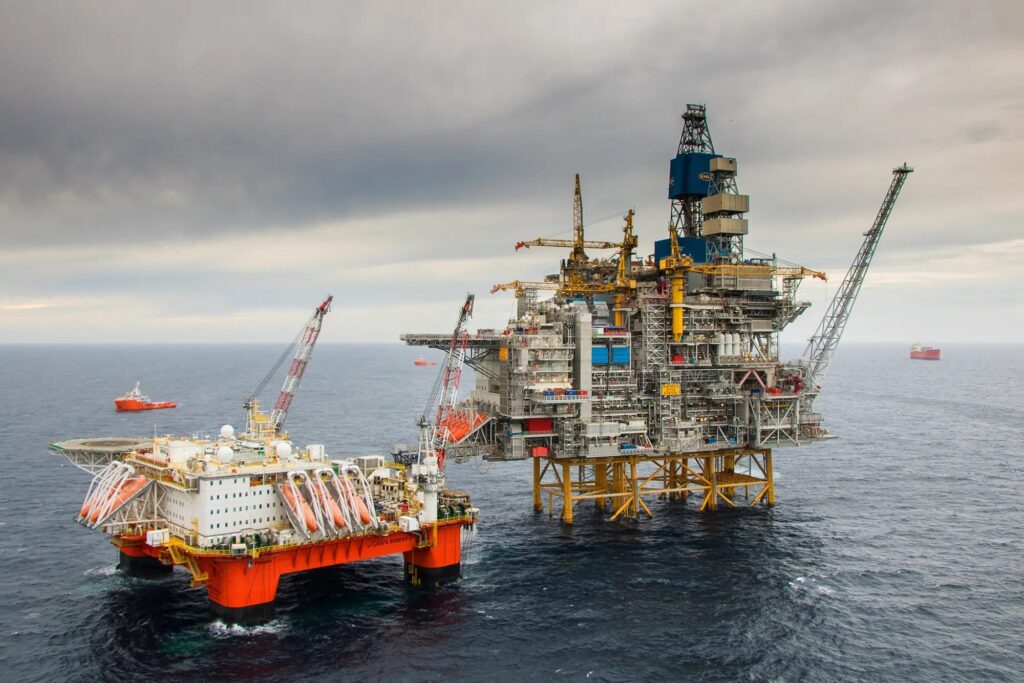This article is from David Blackmon’s Substack, and we highly recommend you follow him. His spot on his analysis of the oil majors and their move away from ‘renewables”. And brings up the other topic quietly, is the new Chairman of the Board of BP being brought on to move to the US to increase shareholder value when they sell?
BP Appoints New Chairman with Experience of Relocation to New York
In a world where energy policy swings like a pendulum caught in a political storm, two stories emerged this week which underscore the failing state of the global energy transition.
Equinor, the Norwegian energy behemoth, just took a $955 million gut-punch on its Empire Wind 1 project, while Shell and other oil giants are quietly abandoning their once-loud promises to chase the elusive net-zero dream. These developments, reported in the second quarter of 2025, reveal a broader truth: the green energy crusade is hitting a brick wall, and the fossil fuel industry is roaring back with a vengeance.
Let’s start with Equinor’s Empire Wind 1, an 810MW offshore wind farm off New York’s coast that was supposed to be a shining beacon of the clean energy future. With $2.7 billion already sunk into a $5 billion project, Equinor claimed it was on track to power 500,000 homes by 2027, which of course we all know is a gross overstatement given offshore wind’s average 20-25% efficiency factor.
But then, in April 2025, the Trump administration slammed the brakes with a stop-work order by Interior Sec. Doug Burgum, who said the environmental analysis from the Biden era was shoddy. The result? A $955 million write-down, with Equinor staring down weekly losses of $50 million while the project sits in limbo, 30% complete.
The company called the order “unlawful” and hinted at legal action, but the whispers in the industry suggest a darker reality: Empire Wind might be scrapped altogether. The political winds have shifted, and with them, the promise of tax credits and subsidies that made offshore wind viable in the first place.
This isn’t just about one project. It’s a canary in the coal mine for the U.S. offshore wind sector, which was sold by Joe Biden and Jennifer Granholm a cornerstone of the so-called energy transition. Equinor, once a poster child for renewable ambition, is now slashing its green investments to focus on what actually pays the bills: oil and gas. The company’s renewable budget for 2025-2027 has been cut in half to $5 billion, a move that screams pragmatism in an era where political support for fossil fuels is resurgent.
The Trump administration’s “drill, baby, drill” mantra isn’t just rhetoric—it’s reshaping the energy landscape, and companies like Equinor are reading the room. Why pour billions into wind farms when oil and gas offer better returns and a friendlier regulatory environment?
Meanwhile, Shell and its fellow oil majors—BP, TotalEnergies, and others—are pulling a similar U-turn. Remember when these companies were tripping over themselves to pledge net-zero emissions by 2050? It was all the rage a few years ago, with glossy reports and grand promises to save the planet. Fast forward to 2025, and those commitments are starting to look like corporate greenwashing at its finest.
Shell, for instance, has quietly dialed back its renewable energy push, doubling down on oil and gas production instead. The company’s flirtation with projects like Northern Lights, a carbon capture venture with Equinor and TotalEnergies, now feels like a relic of a bygone era. BP and others are following suit, scaling back renewable budgets and leaning into the fossil fuels that still power the world. Matter of fact, BP just sold off its entire onshore wind portfolio as part of ongoing reorganization efforts.
Why the retreat? It’s simple: reality bites. The International Energy Agency may still cling to its prediction of peak oil and gas demand by 2030, but the political and economic calculus has shifted. The Trump administration’s policies have given Big Oil a green light to prioritize profits over promises. Geopolitical tensions—think Russia, China, and the Middle East—have kept energy security front and center, and fossil fuels are the reliable workhorse in that equation.
Renewables, with their high costs, intermittent output, and dependence on subsidies, are struggling to compete. Add to that the growing skepticism about the feasibility of net-zero targets, and it’s no wonder oil majors are rethinking their strategies.
This isn’t to say the energy transition is dead, but it’s on life support. Equinor’s write-down and Shell’s and BP’s pivots are symptoms of a broader malaise: a disconnect between ideological ambitions and economic realities. The green dream sold by politicians and activists is running headlong into the hard truth that energy systems don’t change overnight.
For now at least, fossil fuels are back in the driver’s seat, and companies are betting on them to fuel the future. As Equinor licks its wounds and Shell and BP reap the rewards of higher profits thanks to more capital focused on their core oil and gas businesses, the message is clear: In the energy game, pragmatism trumps fantasy-based narratives every time.

